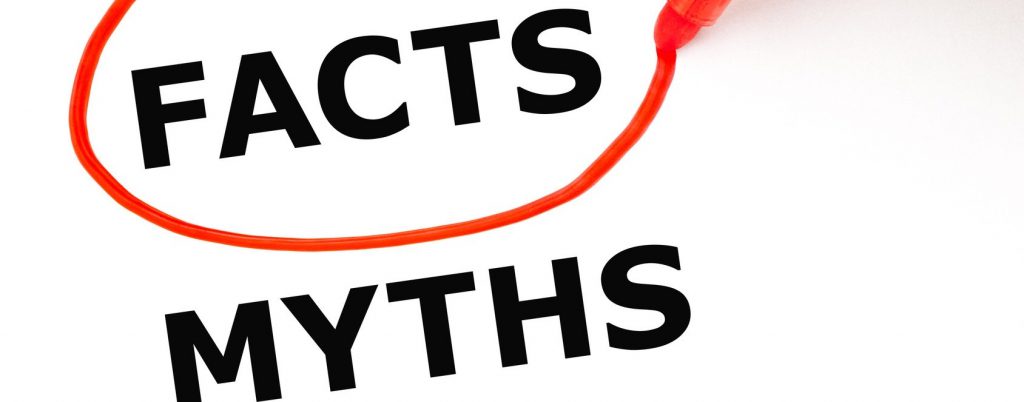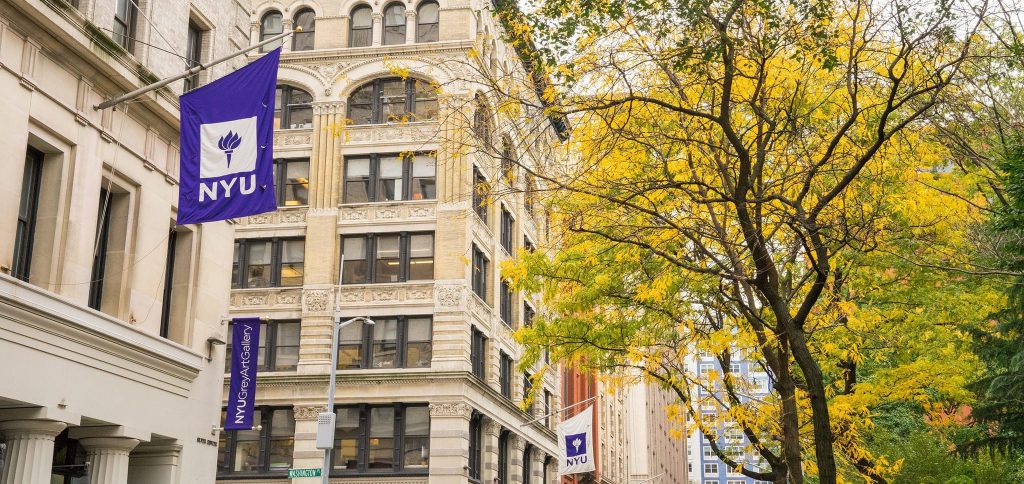NYU has long been a top-choice school for many students. More than 120,000 students submitted applications for fall 2025 admission, but only 7.70% of those applicants were admitted, making NYU exceptionally competitive. To boost your admissions odds, you must ensure that each component of your application presents you in the best possible light, including your NYU supplemental essays. Read on to learn how to ensure your writing sets you apart for all the right reasons.
Introduction to the NYU Supplemental Essay
For those aspiring to join the diverse and dynamic student body of New York University, the supplemental essay is a crucial component of the application. Unlike the Common App essay, which is submitted to all the schools you apply to, the NYU supplemental essay is a targeted opportunity to demonstrate your interest in the university and its unique academic and cultural landscape. While your academic record is the most important factor in the admissions process, your college application essays, if written well, can set you apart from other applicants with comparable grades, course rigor, and test scores.
The supplemental essay matters because it’s your opportunity to go beyond your transcripts and test scores to articulate how you align with NYU’s values and in what ways attending the university will help you grow intellectually and personally. A crucial part of the NYU admissions process is to effectively use your supplemental essay to provide insight into the real person behind the application and your potential to thrive in the world-class institution.
Decoding the NYU Essay Prompt
The NYU essay requirements include your Common App essay and one optional NYU-specific prompt for first-year applicants:
We are looking for students who want to be bridge builders—students who can connect people, groups, and ideas to span divides, foster understanding, and promote collaboration within a dynamic, interconnected, and vibrant global academic community. We are eager for you to tell us how your experiences have helped you understand what qualities and efforts are needed to bridge divides so that people can better learn and work together.
Please consider one or more of the following questions in your essay:
- Tell us about a time you encountered a perspective different from your own. What did you learn—about yourself, the other person, or the world?
- Tell us about an experience you’ve had working with others who have different backgrounds or perspectives. What challenges did your group face? Did you overcome them, and if so, how? What role did you try to play in helping people to work together, and what did you learn from your efforts?
- Tell us about someone you’ve observed who does a particularly good job helping people think or work together. How does this person set the stage for common exploration or work? How do they react when difficulties or dissensions arise? (250 words max).
Now, let’s break down how to write the NYU supplemental essay.
What NYU Means by Bridge Builder
NYU’s bridge-builder prompt signifies a desire for students who are not only academically proficient but also socially and interpersonally skilled. They are looking for people who can:
- Connect people and ideas: This goes beyond simple collaboration. It’s about finding common ground, translating different perspectives for others, and cultivating an environment where diverse individuals and groups can interact productively.
- Span divides: The “divides” can be numerous — cultural, ideological, socioeconomic, political, or even academic (e.g., bridging the gap between STEM and humanities). NYU wants students who can navigate these differences and prevent them from becoming barriers to communication and progress.
- Encourage understanding: A bridge builder is empathetic and curious. They are willing to listen, learn, and try to see the world from another’s point of view, and they help others do the same.
- Promote collaboration: This is the practical outcome of the above points. A bridge builder facilitates group work, ensures all voices are heard, and helps a team move toward a shared goal, even when faced with disagreements.
In essence, NYU is looking for empathetic students who can unite people and contribute to a more inclusive, dynamic, and intellectually thriving campus community.
Reflecting on Your Experiences
To respond to this prompt, it’s important to know how to write about your experiences effectively. Provide a specific, reflective example that demonstrates your bridge-building skills in action. Identify a situation in which you genuinely encountered a significant difference in perspective, background, or opinion. This could be from a school project, a volunteer role, a part-time job, or even a personal experience. The more specific, the better. Once you’ve identified the example you want to write about, it’s time to start drafting your narrative.
Crafting Your NYU Essay: Structure and Content
A compelling NYU supplemental essay requires a thoughtful, strategic approach to stand out. Here are best practices for structuring your response, what content to include, and how to align it with NYU’s culture.
Structuring Your NYU Supplemental Essay for Maximum Impact
Given the 250-word limit, a concise, narrative-driven college essay structure is key. You need to “show, not tell.” Try a variation of the STAR method (Situation, Task, Action, Result) — a proven technique most often used in interviews — but tailored for college essay prompts. These tips can help you use the STAR method effectively.
#1 Write an attention-grabbing introduction (the “hook”/situation). Start with a specific, engaging anecdote or a single sentence that immediately introduces the conflict or divide. Don’t waste words on a generic lead-in. Jump right into the heart of the story:
- Instead of: “I have a lot of experience with people from different backgrounds,”
- Try: “In a heated debate club meeting, our team faced an ideological stalemate…” or “My group project was stalled by a clash between my creative vision and a teammate’s data-driven approach.”
This immediately sets the stage and grabs the reader’s attention.
#2 Use the body of your essay to narrate the action and challenges arising from the situation. This is where you detail your role as a bridge builder. Describe the specific actions you took to address the divide. This is not about being a passive observer — it’s about showcasing your agency.
- Instead of: “I helped people work together,”
- Try: “I organized a structured brainstorming session where we first listed our non-negotiable goals before discussing our individual solutions.”
The prompt asks about challenges. By mentioning them, you show authenticity and self-awareness. Did you face initial resistance? Was it difficult to find common ground? Including these details makes your success more impactful.
#3 Write a reflective conclusion that connects to how you hope to contribute to NYU. This is the most important part. You must describe in detail what this experience taught you about yourself, the other people, or the world. Explain how it changed your perspective on conflict, collaboration, or empathy. Then briefly, and without being cliché, explain how the skills and insights you gained will allow you to contribute to NYU’s community — mention a specific club, program, or academic opportunity that aligns with your bridge-building skills.
Showcasing Personality and Experiences
The trick to knowing how to showcase your personality in essays is to go beyond just telling a story — it’s about revealing your character, values, and intellectual approach to the world. Given the tight 250-word limit, every word counts.
Be Authentic and Vulnerable
Don’t try to write what you think NYU wants to hear. Write about an experience that genuinely challenged you and forced you to grow. Admitting a moment of initial struggle or misunderstanding can be more powerful than presenting yourself as a perfect hero. This vulnerability shows self-awareness and maturity.
- Instead of: “I am an excellent leader and always help my groups work together.”
- Try: “When a teammate and I realized our project was at a standstill, I initially felt frustrated. But I learned to set aside my own ideas and ask clarifying questions, which helped us understand that our conflicting approaches were actually rooted in the same goal.”
Use your personal voice. The essay should sound like you. Use a conversational tone and simple, direct language. Avoid jargon or overly formal prose. Your unique perspective is what makes the essay stand out, so let your personality shine through in your word choice and sentence structure.
Use Personal Anecdotes to Enhance Your Essay
Personal anecdotes are the engine of a great essay. They transform a list of traits into a vivid, memorable story. A well-told story can evoke emotions in the reader such as curiosity, understanding, and admiration. This helps the admissions officer connect with you on a human level, making you more than just another applicant.
Admissions officers read thousands of essays. A personal anecdote — especially one with vivid details like a specific setting or dialogue — makes your essay stand out and stick in their mind long after they’ve finished reading. By using a personal anecdote to show a specific moment where you acted as a “bridge builder,” you can effectively demonstrate your unique personality and values and significantly strengthen your application.
Avoiding Common Mistakes
The most common pitfalls in writing the NYU supplemental essay stem from a lack of genuine reflection and a reliance on generic examples. Here are some college essay mistakes to avoid:
- Using a generic, surface-level example like a standard group project where everyone “learned to work together.” These stories lack a clear, genuine conflict or a deep personal lesson.
- Narrating an event without explaining the specific actions taken to bridge a divide or reflecting on what was learned from the experience. The essay becomes a passive report rather than an active demonstration of character.
- Stating the quality directly (e.g., “I am a good listener”) instead of using vivid anecdotes to illustrate a quality (e.g., “I listened carefully to my classmate’s concerns”). This makes the essay feel more like a resume than a personal story.
- Missing the opportunity for personal growth and reflection. A strong essay isn’t about being perfect; it’s about acknowledging a challenge and showing what you learned about yourself in the process.
Skip the Clichés
To ensure your essay stands out, avoid overused topics and approaches. For example, instead of a group project, consider an experience from a unique extracurricular activity, a volunteer role, a summer job, or a personal situation. A story about mediating a family disagreement or connecting with a person from a different generation is often more compelling than one about a school assignment.
Focus on specifics. Instead of saying you “worked with diverse people,” describe a single person or idea that represented a different perspective. What specific misunderstanding or disagreement arose? What was the exact moment you recognized the divide?
Be Human
An authentic and engaging essay feels genuine and captivates the reader. An effective strategy is to describe a moment in which you were unsure, made a mistake, or had to challenge your own preconceived notions. This humanizes you and makes your growth more believable. Add a few details that help the reader feel the moment. Was the room tense? What was the mood like before the breakthrough? What did you feel when you finally connected with the other person?
Connect your anecdote to your core values and how you see yourself contributing to the NYU community. Show that your bridge building is not just a one-time skill but a fundamental part of your character. Finally, end your essay by connecting your specific experience to a universal truth about human connection, collaboration, or understanding. This shows that your thinking extends beyond the anecdote itself and demonstrates intellectual depth.
Editing and Refining Your Essay
Knowing how to edit your college essay as crucial as the writing process itself. The 250-word limit demands precision, clarity, and impact. Here’s a breakdown of the key elements to focus on during the editing and revision process.
- Content and story arc: Ensure your narrative arc is clear — a problem or “divide” is presented, you take specific action to bridge it, and you reflect on what you learned.
- Language and word choice: Look for opportunities to replace weak verbs (e.g., “was,” “is,” “got”) with stronger, more active ones. Search for repeated phrases, unnecessary adverbs (e.g., “really,” “very”), and verbose sentences. Read the essay aloud to ensure it flows smoothly and has a natural rhythm.
- Word count: If a sentence doesn’t directly contribute to the story or reflection, it needs to be cut. If you are over the word count, identify the most impactful elements of your story and focus on those.
- Grammar, spelling, and punctuation: After you’ve refined the content, do a final proofread for any grammar and spelling mistakes, which can detract from an otherwise strong essay. Reading it backward, sentence by sentence, can help you catch mistakes you might otherwise miss.
We can’t emphasize this enough: Get feedback! Here’s some advice from IvyWise counselor Robin: “Enlist a trusted friend or family member, someone whom you can rely on to give you warm AND cool feedback, not someone who will simply smile and say, ‘This is great!’”
However, she cautions against having too many people review your essay because you may get a wide range of opinions and conflicting suggestions. “The quality of your essay may suffer if you try to implement too much feedback, resulting in your own voice being diminished,” she says.
Student Examples of Successful NYU Essays
NYU’s supplemental essay prompt for the 2024-25 admissions cycle was also about bridge builders, though the prompt was worded differently. Let’s look at two NYU supplemental essay examples that worked:
Example 1
Having lived in Italy, Mexico, and the U.S., I’ve absorbed different cultures and learned how each culture has values from which we can all benefit. When I first arrived in Mexico, I felt out of place, but my schoolmates warmly approached me and helped me adapt. This taught me the value of empathy, pushing me to ensure everyone in a community is included and respected. In Italy, cooking “Tagliatelle all Bolognese” with my grandma taught me the value of genuineness, compelling me to foster open communication.
At NYU, I’d contribute to classes like “Global Strategy” by offering real examples of how my Italian-Mexican-American background shapes my perspective. Leading the Wharton Investment Competition showed me the power of multicultural collaboration as we were the only team to propose a country-diversified solution.
I also plan to grow my Youth in Biz program through the Social Impact Fellows Program, aligning with NYU’s bridge-builder philosophy. I look forward to collaborating with NYU’s diverse, ambitious student body to provide business education to underrepresented students in the New York area, fostering a more equitable local business community.
I will use my ability to connect with people from different backgrounds to help build an inclusive, diverse community, as I did during the Columbia University summer program. When my Taiwanese roommate struggled with cultural differences, I organized a dinner where he shared his cuisine with other students, helping him feel more comfortable. I hope to work the same magic at NYU.
This applicant highlights their bridge-building skills in several ways, demonstrating that it’s a core part of their character, not just a one-time event. The writer starts with their own multicultural background, showing how they’ve personally navigated different cultures — a personal and cultural bridge. This sets the foundation for their ability to connect with diverse people. They also use examples (e.g., Wharton Investment Competition, Youth in Biz program) to highlight how they’re a bridge builder academically and in their community.
Instead of just listing experiences, the writer explicitly states what they learned from each one. This is the reflection piece that makes an essay stand out in the admissions process. The writer also connects their experiences to specific NYU classes and programs to show how they will fit in and contribute to the campus community.
Example 2
Cycling over a bridge, I reached Ushguli, a town in the Caucasus Mountains of Georgia. In a small house, the town’s movie theater, I watched Dede. The theater’s namesake and the only movie they played, it was about a woman from Usghuli during the Georgian Civil War battling the outdated and misogynistic rules and customs of the time to protect her son. By chance I found this hidden gem, allowing me to learn a great deal more about Svan culture and history than I would’ve by just walking around.
In moments like these, I build bridges to develop a true understanding for cultures and people I encounter. I took the opportunity to talk to the ticket master. She shared Dede fun facts, like how the son was played by a local boy who became a celebrity in Ushguli and could still be found running around the streets sometimes. Through taking the time to explore and communicate, I built a bridge that made my trip to Ushguli uniquely special.
I find bridges like this necessary whenever I interact with others. When exploring unique destinations, I have the opportunity to build bridges across large cultural divides. Although more challenging, I’m able to learn not only about new ideas and ways of life but even methods of building bridges when words come short, such as playing music together, exchanging recipes, and sharing experiences. At NYU, I’ll continue building bridges, whether by exchanging ideas in the classroom or cooking meals together in the kitchen.
This essay is effective because it moves beyond a simple story to demonstrate core qualities NYU is looking for, all within the strict word count. Here’s a breakdown of what makes it work:
- Instead of a common school project, the author uses an unforgettable personal experience: cycling to a remote town in Georgia and finding a “hidden gem” movie theater. This anecdote is specific and memorable, immediately setting the essay apart. The details — the Caucasus Mountains, the movie “Dede,” the ticket master — create a vivid picture that an admissions officer can easily recall later. This demonstrates the author’s intellectual curiosity and sense of adventure.
- The writer immediately connects their story to the concept of “bridge building.” They don’t just say they built a bridge; they show how the experience of watching a local film and talking to a resident allowed them to develop a “true understanding” of a culture. The essay successfully reframes a tourist activity into an act of thoughtful engagement, which is exactly what NYU is looking for.
- The most crucial part of the essay is the reflection. The student explains what they learned: not just historical facts, but how to build bridges “when words come short.” They offer specific examples like playing music or exchanging recipes, which adds depth and maturity to their reflection. This shows that the author is a deliberate and reflective person who learns from their experiences and can apply those lessons to new situations.
- The author comes across as adventurous, empathetic, and intellectually curious. Their willingness to cycle to a remote location and engage with a small, local community shows that they are proactive and open-minded. The essay suggests a student who will actively seek out different perspectives and contribute to the campus culture.
- The final sentence effectively ties the author’s past experience to their future at NYU. The phrase “At NYU, I’ll continue building bridges, whether by exchanging ideas in the classroom or cooking meals together in the kitchen” is simple but powerful. It shows they understand that bridge building isn’t just a physical act but a daily practice of engagement in a diverse community.
In essence, this essay succeeds because it isn’t about the feat of cycling or the movie itself. It’s about the author’s mindset — their approach to learning, connecting, and understanding the world. This is the central lesson for anyone writing a supplemental essay for NYU.
IvyWise Can Help You Write a Compelling NYU Supplemental Essay
A standout NYU supplemental essay humanizes your application, allowing the admissions committee to experience your unique voice, understand your values, and see your personality — which could be a differentiating factor for admission. For your essay to be compelling, you must be authentic and reflective, in addition to demonstrating how you align with the university’s core values. This is no easy feat in an essay of 250 words or less!
It can be challenging to write an essay that sets you apart from other NYU applicants. Every student can benefit from college admissions assistance, especially if their goal is to gain admission to a school as competitive as NYU. If you’re interested in learning how to take your NYU supplement application essay to the next level, our team is here to help.
Editor’s Note: This post was originally published in August 2022 and has been updated for accuracy and comprehensiveness.
Contact Us




